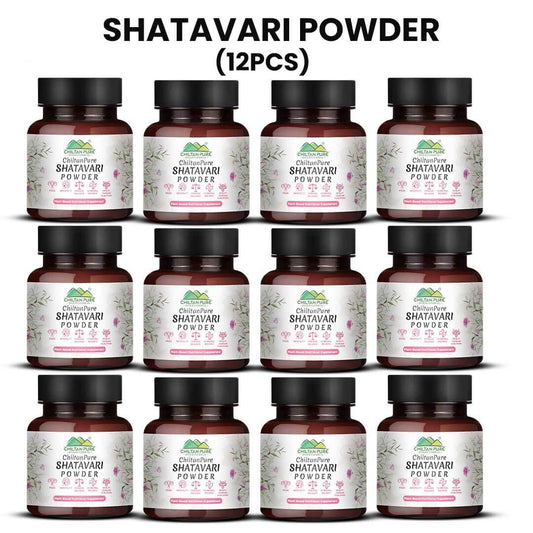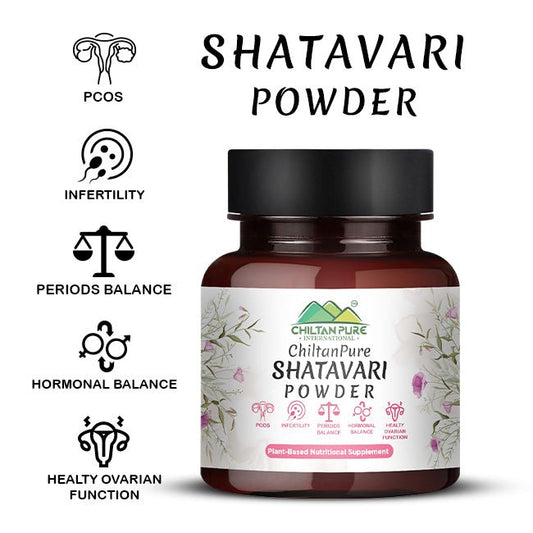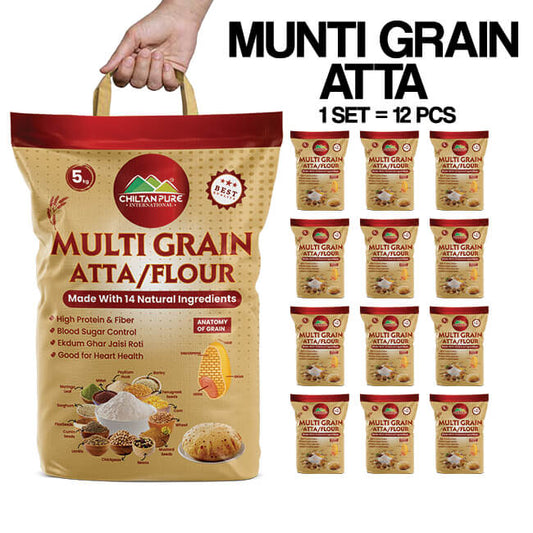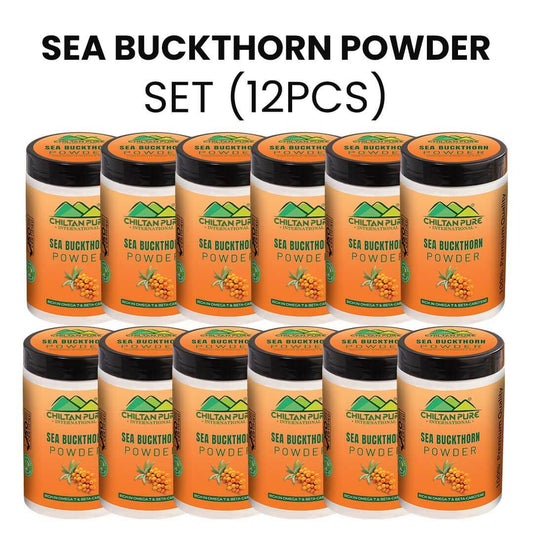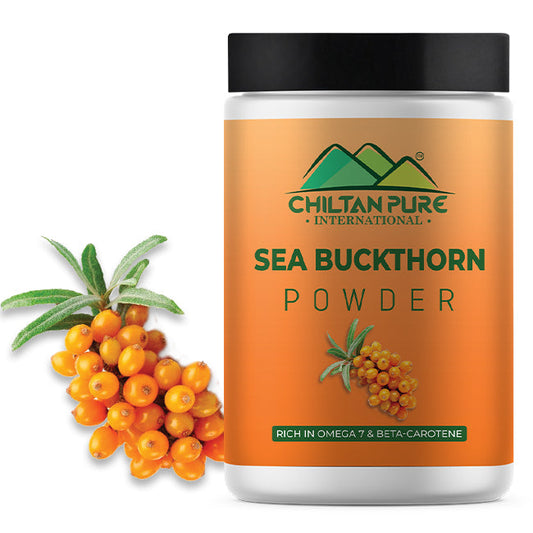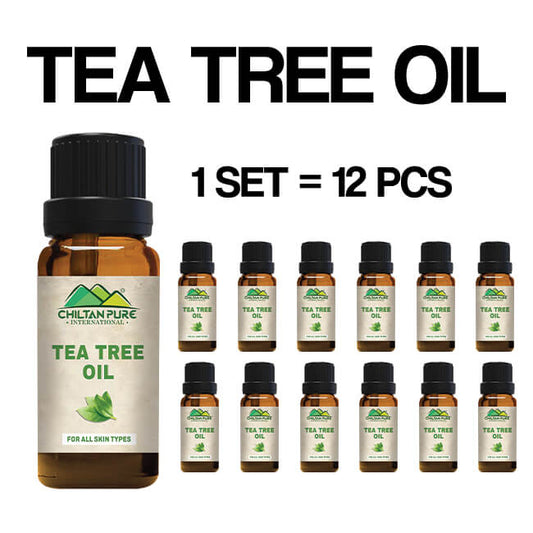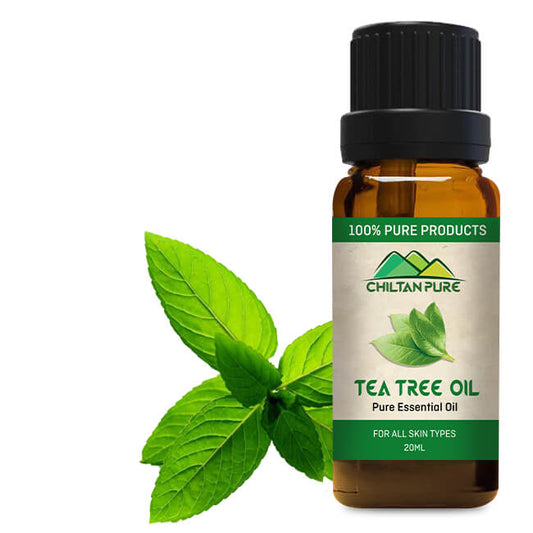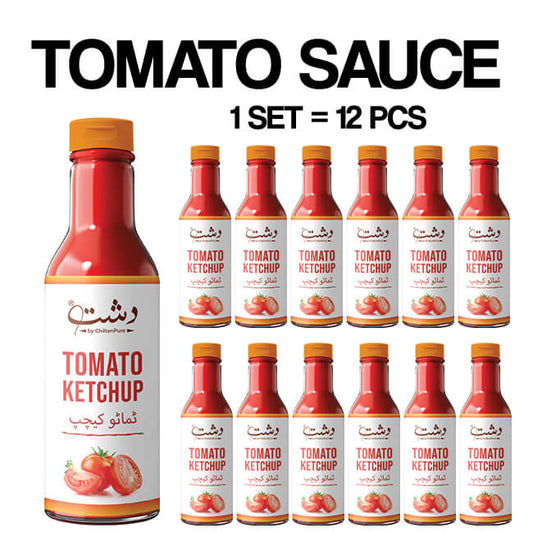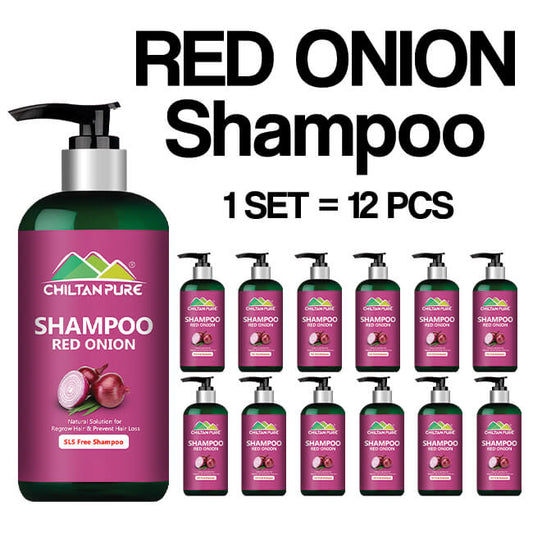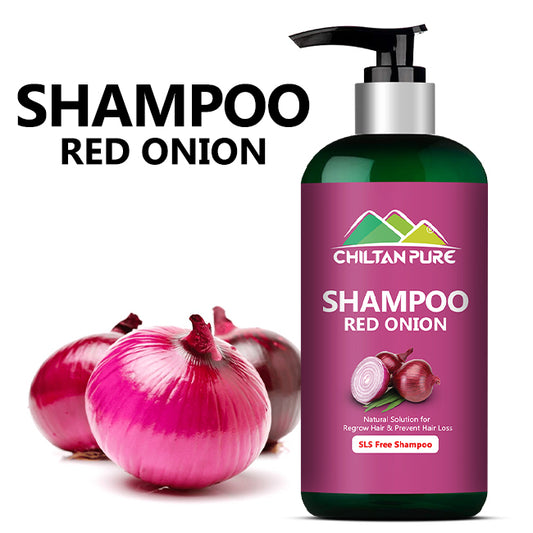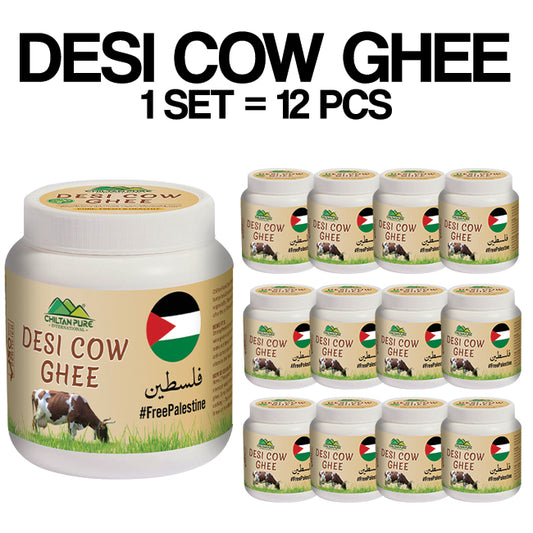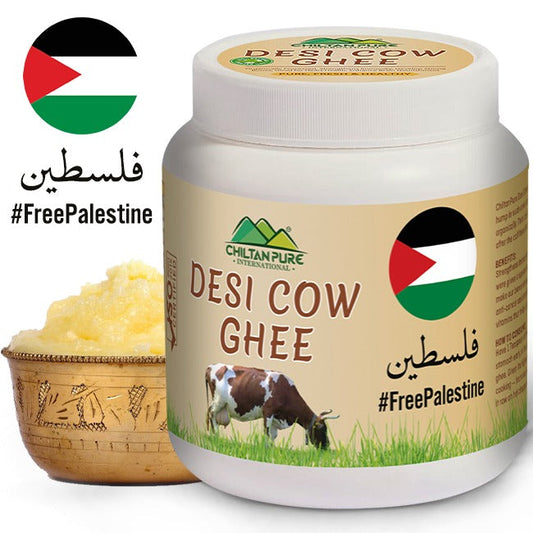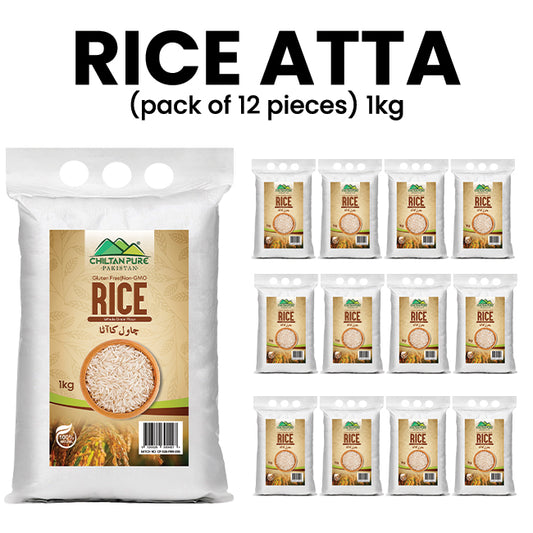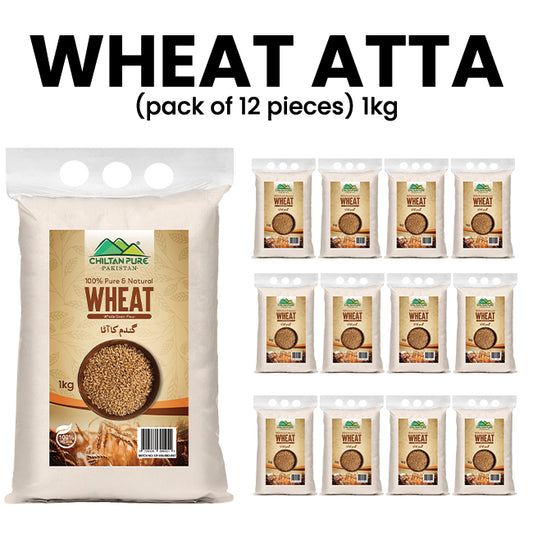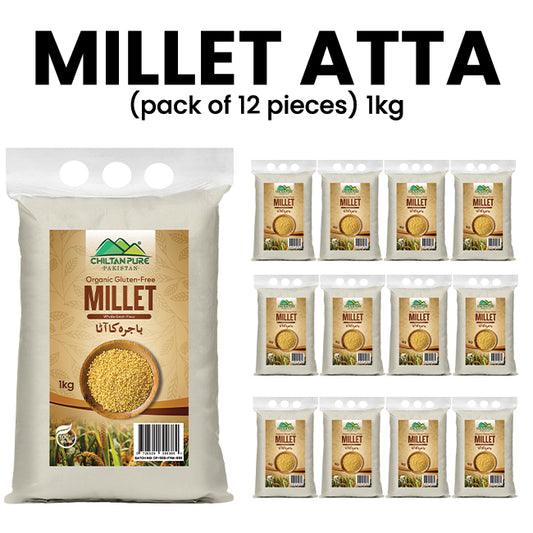Buckwheat Flour – Highly Nutritious & Whole Grain Flour
- Regular price
- Rs. 10,071
- Regular price
-
Rs. 14,388 - Sale price
- Rs. 10,071
- Unit price
- per
Prime Fast Delivery
|
Vendor:
wholesale.chiltanpure
10 customers are viewing this product
Couldn't load pickup availability
Need More Info ~ Chat with Sales Person! Whatsapp NOW
Chiltanpure Buckwheat Flour
‘Buckwheat’- this name might suggest that it is a type of cereal similar to wheat. But buckwheat has no connection with grain whatsoever.
It is a fruit seed that is closely related to rhubarb, sorrel, and knotweed. These grain-like seeds have a unique triangular shape and have the same size as wheat kernels.
To make them edible, their outer hull has to be removed with the help of special milling equipment. Its colour varies from tannish pink to brown. Buckwheat Flour is also used for diabetes treatment.
Just like wheat, buckwheat also can be ground into flour and can be a suitable substitute for corn in the case of those who are gluten intolerant as buckwheat is gluten-free.
The darker form of buckwheat is more nutritious. Buckwheat flowers attract bees that use them to produce a strongly flavoured dark honey.
Buckwheat is available in roasted and unroasted ways. The roasted way is also known as ‘kasha’ which is widely used in traditional European dishes.
In the United States, it is commonly used in porridges and pancakes. The unroasted, whole buckwheat kernels are known as buckwheat grains or hulled buckwheat. Buckwheat Flour is also used for diabetes treatment.
Protection Against Breast Cancer
Research has proved that eating a diet rich in fibre from whole grains such as buckwheat reduces the risk of breast cancer.
Pre-Menopausal women eating wholegrain fibre are at a lower risk of developing breast cancer. The antioxidant properties of buckwheat are used as an antidote for x-ray irradiators.
The antioxidants, lignans play an essential role in estrogen reception and hence, are beneficial for women during or after their menopause.
The plant lignans are converted into mammalian lignans in the intestines. One of this called enterolactone is believed to protect against breast cancer and other forms of cancer-related to hormones. Buckwheat Flour is also used for diabetes treatment.
Nutritional Facts
|
Serving Size |
Per 100g |
DV (Daily Value) |
|
Calories |
343 Kcal |
17% |
|
Total Carbohydrates |
71.5 g |
24% |
|
Dietary Fiber |
10 g |
40% |
|
Total Fat |
3.4 g |
5% |
|
Protein |
13.2 g |
26% |
|
Iron |
2.2 mg |
12% |
|
Magnesium |
231 mg |
58% |
|
Phosphorus |
347 mg |
35% |
|
Zinc |
2.4 gm |
16% |
|
Copper |
1.1 mg |
55% |
|
Manganese |
1.3 mg |
65% |
- Aids in Weight Loss
- Diabetic Friendly
- Reduce Blood Pressure
- Cardiovascular Health
- Protection Against Breast Cancer
- Protection Against Childhood Asthma
- Prevents Gallstones
- Healthy Bone Structure
- Immune System
- Mental Health
- Natural Suntan
- Prevents Aging
- Makes Skin Glow
- Helps Hair Grow
- Improves Hair Health
- Diabetes Treatment
Related Products
Chiltanpure
Example product title
- Regular price
- Rs. 10,071
- Regular price
-
Rs. 14,388 - Sale price
- Rs. 10,071
- Unit price
- per
Chiltanpure
Example product title
- Regular price
- Rs. 10,071
- Regular price
-
Rs. 14,388 - Sale price
- Rs. 10,071
- Unit price
- per
Chiltanpure
Example product title
- Regular price
- Rs. 10,071
- Regular price
-
Rs. 14,388 - Sale price
- Rs. 10,071
- Unit price
- per
Chiltanpure
Example product title
- Regular price
- Rs. 10,071
- Regular price
-
Rs. 14,388 - Sale price
- Rs. 10,071
- Unit price
- per
Chiltanpure
Example product title
- Regular price
- Rs. 10,071
- Regular price
-
Rs. 14,388 - Sale price
- Rs. 10,071
- Unit price
- per
Chiltanpure
Example product title
- Regular price
- Rs. 10,071
- Regular price
-
Rs. 14,388 - Sale price
- Rs. 10,071
- Unit price
- per
Chiltanpure
Example product title
- Regular price
- Rs. 10,071
- Regular price
-
Rs. 14,388 - Sale price
- Rs. 10,071
- Unit price
- per
Chiltanpure
Example product title
- Regular price
- Rs. 10,071
- Regular price
-
Rs. 14,388 - Sale price
- Rs. 10,071
- Unit price
- per
Chiltanpure
Example product title
- Regular price
- Rs. 10,071
- Regular price
-
Rs. 14,388 - Sale price
- Rs. 10,071
- Unit price
- per
Chiltanpure
Example product title
- Regular price
- Rs. 10,071
- Regular price
-
Rs. 14,388 - Sale price
- Rs. 10,071
- Unit price
- per
Recently Viewed Products
Chiltanpure
Example product title
- Regular price
- Rs. 10,071
- Regular price
-
Rs. 14,388 - Sale price
- Rs. 10,071
- Unit price
- per
Chiltanpure
Example product title
- Regular price
- Rs. 10,071
- Regular price
-
Rs. 14,388 - Sale price
- Rs. 10,071
- Unit price
- per
Chiltanpure
Example product title
- Regular price
- Rs. 10,071
- Regular price
-
Rs. 14,388 - Sale price
- Rs. 10,071
- Unit price
- per
Chiltanpure
Example product title
- Regular price
- Rs. 10,071
- Regular price
-
Rs. 14,388 - Sale price
- Rs. 10,071
- Unit price
- per
Chiltanpure
Example product title
- Regular price
- Rs. 10,071
- Regular price
-
Rs. 14,388 - Sale price
- Rs. 10,071
- Unit price
- per
Chiltanpure
Example product title
- Regular price
- Rs. 10,071
- Regular price
-
Rs. 14,388 - Sale price
- Rs. 10,071
- Unit price
- per
Chiltanpure
Example product title
- Regular price
- Rs. 10,071
- Regular price
-
Rs. 14,388 - Sale price
- Rs. 10,071
- Unit price
- per
Chiltanpure
Example product title
- Regular price
- Rs. 10,071
- Regular price
-
Rs. 14,388 - Sale price
- Rs. 10,071
- Unit price
- per
Chiltanpure
Example product title
- Regular price
- Rs. 10,071
- Regular price
-
Rs. 14,388 - Sale price
- Rs. 10,071
- Unit price
- per
Chiltanpure
Example product title
- Regular price
- Rs. 10,071
- Regular price
-
Rs. 14,388 - Sale price
- Rs. 10,071
- Unit price
- per
- Choosing a selection results in a full page refresh.
